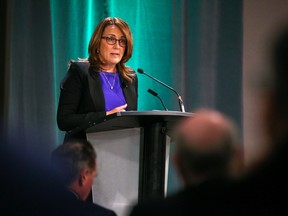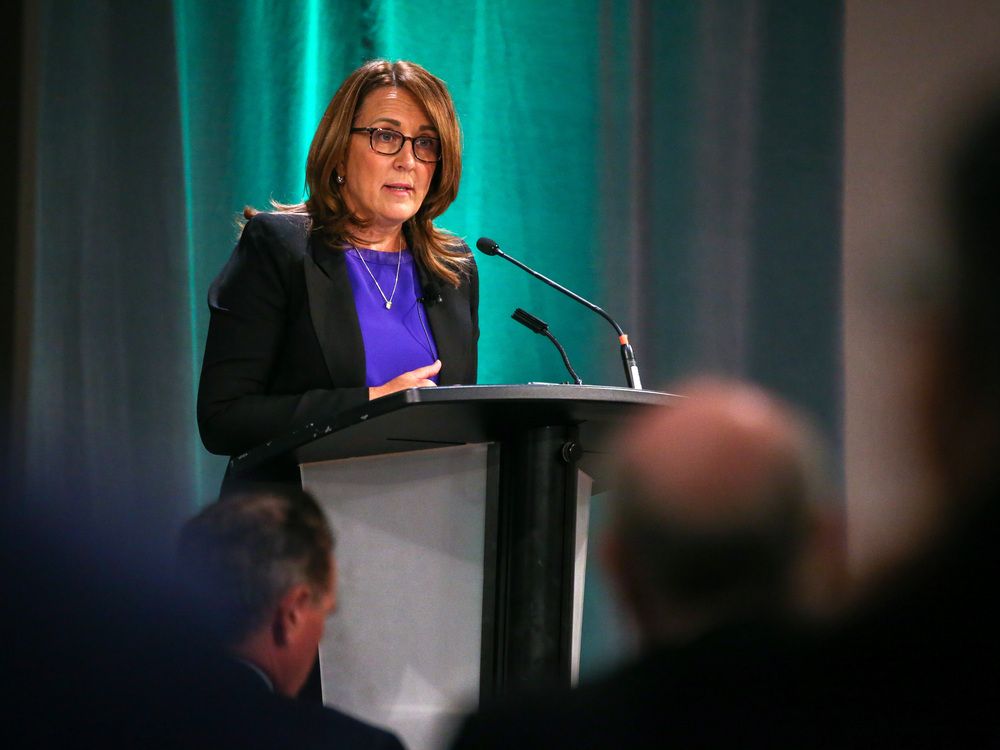Interest rate hikes will take time to work their way through the economy, senior deputy governor says

Article content
If Canadians were expecting a quick fix to decades-high inflation, they may be disappointed. Bank of Canada senior deputy governor Carolyn Rogers told Canadians that interest rate hikes take time to work their way through the economy.
Advertisement 2
Article content
In a Sept. 8 speech before Calgary Economic Development, Rogers said the policy rate decisions the central bank is making right now could take up to two years to have their full effect on inflation.
Article content
“Given the lag between changes to interest rates and their impact on inflation — and the considerable uncertainty surrounding the outlook — getting inflation all the way back to two per cent will take some time,” Rogers said in her second public speech since joining the bank. “We also know there could be bumps along the way.”
“Monetary policy works like a chain reaction or sequence of events,” Rogers added. “But that sequence takes time. Both history and research tell us that changes to the bank’s policy rate affect different households and sectors of the economy differently and at different speeds.”
Advertisement 3
Article content
The housing sector has been a prime example, Rogers noted, as rising mortgage costs have taken demand out of housing markets across the country.
Getting inflation all the way back to two per cent will take some time
Carolyn Rogers
The speech came one day after the Bank of Canada’s decision to raise the policy rate by 75 basis points and bring the overnight rate up to 3.25 per cent, the highest it has been since 2008. With a tight labour market and rampant inflation, Rogers pointed to the rising risks of this inflation becoming entrenched as the reason for the move and the bank front-loading interest-rate increases.
In her economic progress report update, Rogers noted that while the consumer price index eased below the eight per cent mark to an annualized pace of 7.6 per cent, most of the declines were led by falling gasoline prices and that core inflation continued to move up. There remain uncertainties in the global commodity markets that could make the fight against inflation much more difficult.
Advertisement 4
Article content
Rogers also acknowledged the struggle Canadians are facing with rising borrowing costs on top of high inflation.
“The speed and size of these rate hikes have been unusual, and we know some Canadians are anxious to know whether they are working as intended to bring down inflation,” Rogers said. “We also know that, for many Canadians, higher rates are adding to the burden they are already facing with high inflation. But raising interest rates is necessary to bring inflation down.”
-

Bank of Canada raises rate 75 bps and signals more hikes to come
-

On our way to 4%? What economists say about Bank of Canada’s statement
-

Lagging loonie unlikely to get a boost from rate hikes as greenback stays strong
-

Hard bargain: Unionized workers prepare to battle for big pay hikes amid super-charged inflation
Advertisement 5
Article content
Some economists characterized Rogers’ speech as a more surgical approach compared to the “sledgehammer” monetary policy actions the central bank has been taking in recent months. Royce Mendes, managing director and head of macro strategy at Desjardins, wrote that central bankers are increasingly concerned that inflation expectations could become unmoored and prompt high inflation to become self-fulfilling.
“The speech made clear that the lags in monetary policy mean that central bankers are flying blind when it comes to how high rates need to rise,” Mendes said in a Thursday note following the speech. “That said, if monetary policymakers have to make a choice between a recession and controlling inflation in the near-term, their actions will be guided by the latter.”
Looking ahead, Rogers said the Bank of Canada would be keeping a close eye on global developments that could impact supply chains and volatile commodity prices.
• Email: shughes@postmedia.com | Twitter: StephHughes95


